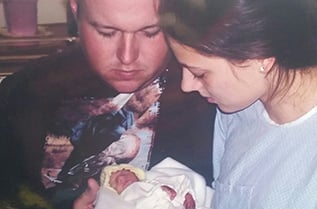This panel of enzymes is intended for patients with a diagnosis or clinical suspicion of an oligosaccharidosis condition and includes quantification of the activity of 6 or 7 enzymes, depending on the sample type. Enzyme analysis and demonstrating deficient activity is considered the gold-standard in diagnosing lysosomal storage disorders.
2 weeks
82657 x3
$600
Lysosomal storage disorders are a broad group of diseases composed of a variety of sub-groups of disorders, such as the mucopolysaccharidoses, the glycoproteinoses, and the sphingolipidoses. A lysosomal storage disease can present in a number of different ways. Infants or children may have growth failure, developmental regression, corneal or lens clouding, hepato- and/or splenomegaly, coarsening facial features and skeletal abnormalities. Some disorders are more likely to have a neurological presentation or present in adults. While a diverse group, different storage diseases may have similar clinical features, thus it may be necessary to measure a number of different enzyme activities prior to finding the one deficient in a particular patient.
Enzyme testing may be ordered as follow-up to abnormal urine screening or as a first tier testing.
Assays for lysosomal enzymes will employ an artificial 4-methylumbelliferyl substrate and activity is measured using a fluorometer. These are quantitated assays and the units will vary among each enzyme.
Enzyme activity can be measured in whole blood, leukocytes, or dried blood spots except for sialidosis which can only be performed in fibroblasts. Please note, if fibroblasts are received then aspartylglucosaminidase cannot be measured. Send 5-7 ml of whole blood in a green top (sodium heparin) tube or skin biopsy in culture media.
Whole blood should be sent over overnight at ambient temperature. Do not freeze whole blood. Samples for enzyme analysis must arrive to the lab the next day. For dried blood spots, when sample has dried 3-4 hours, fold cover at score line, over sample, and tuck into flap. Sample should be sent at ambient temperature.
Call our laboratory at 1-800-473-9411 or contact one of our Laboratory Genetic Counselors for assistance.
Robin Fletcher, MS, CGC
Falecia Thomas, MS, CGC
Alex Finley, MS, CGC
